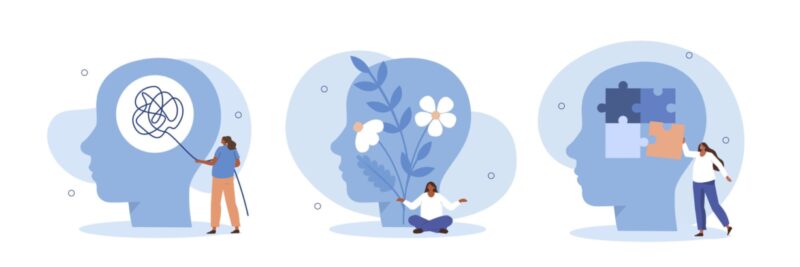People who suffer from bipolar disorder, also known as manic-depressive disorder in older texts, have episodes throughout their lives in which their mood and character change dramatically, either toward deep depression, or toward depression. opposite pole: what we know as episodes of mania or hypomania. Between one episode and another, the person shows normal mood and behavior.
During a manic episode, the person presents great irritability or an excessively cheerful, euphoric mood, with symptoms such as:
➤ excessive energy
➤ less need for hours of sleep (insomnia without feeling tired)
➤ racing thinking
➤ verbiage (speak in an accelerated and uninterrupted manner)
➤ feelings of greatness that can lead them to make decisions without thinking about the real consequences
➤ risk behaviors (large economic expenses, consumption of toxins, unprotected or atypical sexual behaviors in the person, etc.)

The most serious cases lose contact with reality, presenting psychotic symptoms such as hallucinations or delusions. These episodes are very disruptive, and often require hospitalization.
Hypomanic episodes are less severe and disruptive, not requiring hospitalization. By definition, they present without hallucinations or delusions.
Once the condition is stabilized, the patient can generally recover a stable life, as long as they maintain a series of precautions to prevent relapses.
Relapse prevention becomes the fundamental pillar of treatment, the fewer relapses, the less long-term brain damage.
In addition to providing the most appropriate treatment and the necessary medical check-ups, I will be in charge of strengthening the person’s self-awareness of the disorder, key in early detection of the onset of relapse, in order to treat it on time and avoid major consequences.
